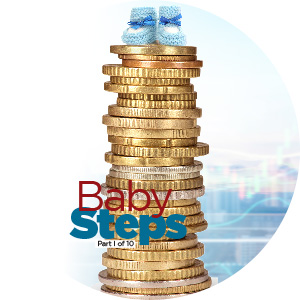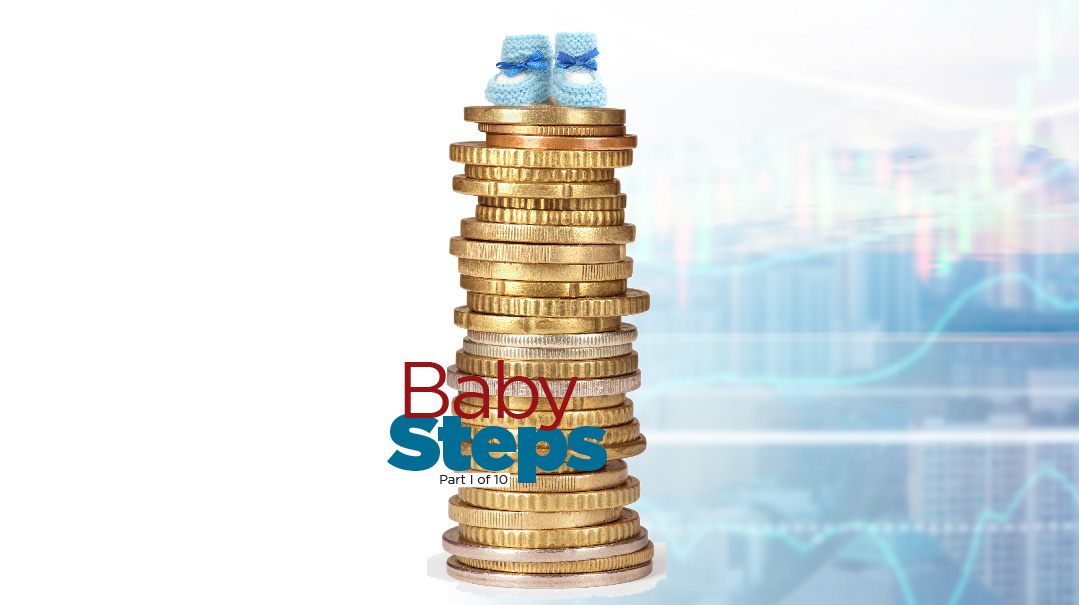Baby Steps: Part 2 of 10
| May 4, 2021I glanced at the last audio book on the shelf. The Total Money Makeover, the title read
December 2015
MYresolve not to think about the recent developments until the end of winter break lasted about two days.
I found myself in the local library, hunting for books about fertility, desperate to learn something — anything — my college biology classes hadn’t taught me. I gathered a small stack of books, covering everything from acupuncture to diets to meditation, and was just heading toward the checkout station when the library’s small audio book section caught my eye.
Might as well pick something out while I’m here, I thought, and walked over. Vacation would be over next week, and I had an hour-long commute to my teaching fellowship at a public high school. I’d been devouring audio books during the long commute, and had already listened my way through a large part of this section of the library.
I flipped past several titles I’d already finished, then passed over some recordings in German and Japanese. Frowning at the third volume of a fantasy series — the series looked cool, but I wasn’t going to start with the third book — I glanced at the last audio book on the shelf. The Total Money Makeover, the title read.
We pay off $1,080 in loans every month, I thought, remembering last week’s conversation with my husband. We could probably use a money makeover. I placed the audio book at the top of the stack, checked out, and headed home.
The next Monday, after starting the car for my long drive to work, I turned on the first CD, and Dave Ramsey’s Southern accent boomed into the vehicle. Dave, I quickly learned, was an evangelical who hosted a famous radio show that discussed financial matters. He often quoted from Mishlei and Tehillim to bolster his points about money.
As I drove, I learned all about the “Dave Ramsey Plan” for personal finance. In a nutshell, Dave’s philosophy is that a person should work hard to get out of debt, stay out of debt, and build wealth in order to be able to give tzedakah generously. His book outlines a seven-step method, known as the Seven Baby Steps, to achieve these goals.
I pulled into the school parking lot feeling hopeful that perhaps we could get our finances straight sooner rather than later. I counted the minutes until the school day ended, then took a slightly longer route home in order to listen to the book’s inspiring stories of people who had gotten out of massive amounts of debt using the Seven Baby Steps. By the time I parked in front of our condo, I was sold on the plan — I knew that following this method would be the key to knocking out our debt and saving for fertility treatments. All I needed to do was get my husband on board.
“Nat!” I exclaimed as I came through the front door, “we can save for IVF and get rid of our student loans! We just have to do this Ramsey plan and start with Baby Step 1 today!”
Nat looked at me like I had two heads.
“Whoa, now,” he cautioned, “Ramsey who? What’s Baby Step 1?”
Breathlessly, I explained that Dave Ramsey was a financial guru I’d been listening to in the car, and that he had a plan to get us out of debt for good.
“In the car?” Nat raised an eyebrow.
“Yeah, I’m listening to his audio book. I picked it up at the library.”
“I see,” said Nat, lowering his eyebrow but still looking skeptical. “And how do we follow these — what are they called? Baby Steps?”
“Baby Step 1 is to save a mini-emergency fund of $1,000,” I said, recalling what I had heard on my commute, “But before we do that, we’ll need to make a budget for the month, to see where our money’s going. And cut up the furniture store credit card.”
Ramsey had stressed that making a budget and tossing all credit cards were fundamental to the entire plan, and had to be done before starting the first Baby Step.
“Sure, we can make a budget — we’re both pretty good with numbers,” said Nat. “And we won’t be shopping for furniture again soon, so we can cancel the account and cut up that card. But hold on. Don’t we already have a savings account with more than $1,000 in it?”
I nodded. I was fortunate to have had parents who encouraged me to work and save as early as I was able. I’d done everything from babysitting in high school to waitressing in college to tutoring in graduate school. I’d opened an account for emergency savings as soon as I was old enough to get myself to and from the bank alone, and by the time I got married, saving money was a well-practiced habit.
“Right,” I said, determined. “Looks like we’re already done with Baby Step 1, then. We’ll have to drain that account down to $1,000 and use the rest of it to pay off our debt.” I crossed my arms, resolute in my decision.
Nat looked at me apprehensively. “Down to $1,000? That’s not a lot of money for an emergency. This seems pretty extreme.”
I felt my shoulders tense. Why isn’t he excited about this? Doesn’t he want to get out of debt so we can pay for treatments? Doesn’t he want to build a secure future for us and, im yirtzeh Hashem, our future family? I opened my mouth to argue, but remembered my friend Naomi’s wisdom: Make sure the marriage is strong — that’s what’s most important. I took a deep breath, and dropped my shoulders back down.
“You heard what the doctor said,” I said, trying to keep my voice even, “and we know these treatments will be expensive.”
“Right,” answered Nat. “That’s why our goal is to save and pay for them up-front. We talked about that — I’m with you there.”
“Right now, we’re paying a ton of money each month to our loans. That’s money we could be saving for treatments. I’m excited about this plan because I think it will help us meet our goals. Dealing with this whole situation is stressful, but I want to work together to make the stress as minimal as possible. What do you think?”
Nat looked at me, without speaking, for what felt like an eternity. “What do I think? I think we can…”
to be continued…
(Originally featured in Mishpacha, Issue 859)
Oops! We could not locate your form.


